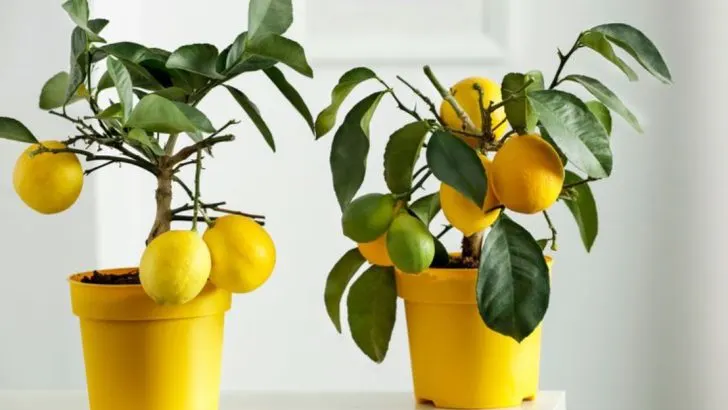Incorporating Feng Shui plants into your garden is a powerful way to attract good luck, positive energy, and harmony into your home. According to Feng Shui principles, certain plants promote wealth, health, and happiness by balancing the flow of energy, or Chi, in your surroundings. By carefully selecting and placing these plants, you can create a peaceful, thriving garden that enhances both your well-being and fortune.
From lucky bamboo and money trees to vibrant flowers and air-purifying plants, each plant carries a unique symbolic meaning that can improve different aspects of your life. Whether you’re looking to boost prosperity, invite love, or create a calming retreat, these plants can help you cultivate a harmonious outdoor space filled with positive vibrations.
In this article, we’ll explore 21 Feng Shui plants that can bring good luck, balance, and positive energy to your garden, helping you create a space that nurtures both your plants and your spirit!
Bamboo
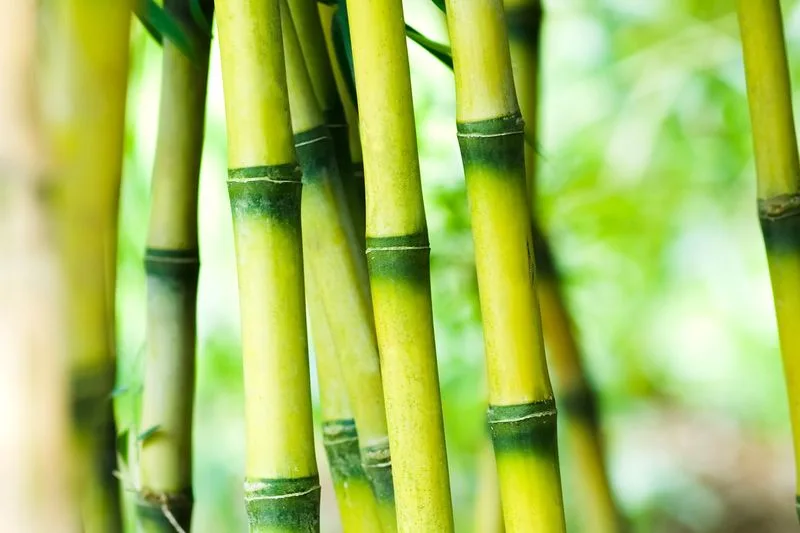
Admired for its rapid growth and adaptability, bamboo symbolizes strength and resilience. Its straight, tall stalks are believed to channel prosperity and positive energy. Planted in the southeast corner of a garden, bamboo enhances wealth and good luck. Regular trimming keeps it looking sharp and prevents overgrowth. In Feng Shui, bamboo is often associated with flexibility and protection, making it a versatile choice for any garden design. Its presence is said to ward off negative influences while fostering a peaceful environment.
Jade Plant
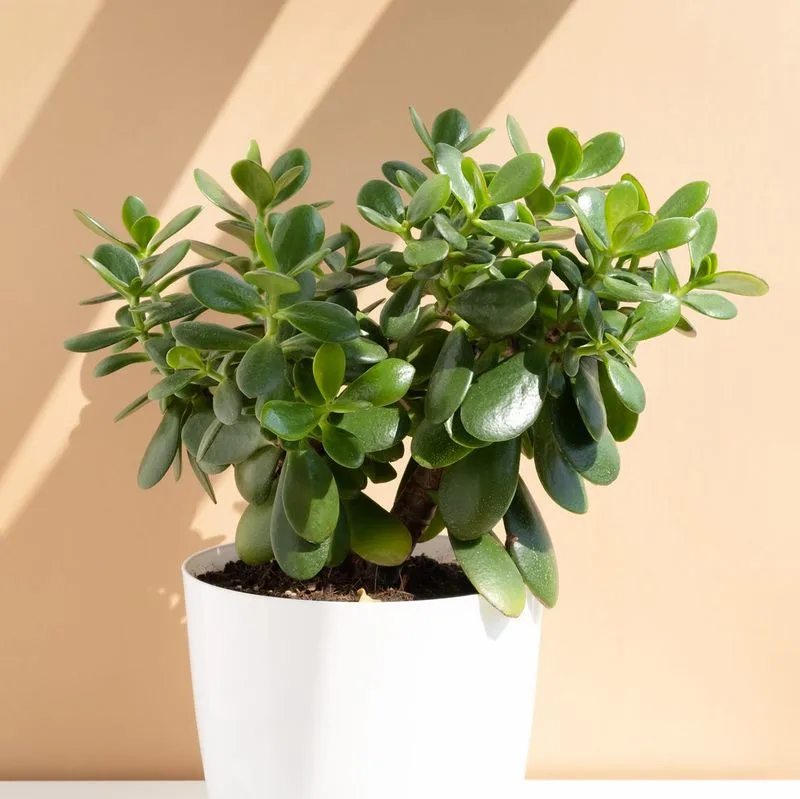
Known as the money plant, the jade plant is associated with financial luck and prosperity. Its round, coin-like leaves embody wealth and abundance, making it a popular choice for garden enthusiasts. Positioning jade plants near entrances is said to attract wealth into the home. They thrive in well-drained soil and sunny spots, requiring minimal maintenance. The jade plant’s vibrant green foliage adds a touch of elegance, and its reputation for bringing success makes it a cherished addition to any garden.
Peace Lily
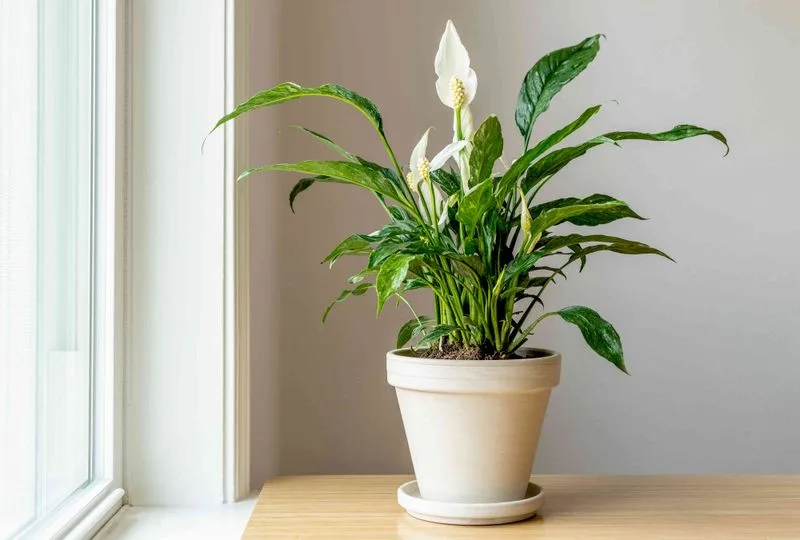
Peace lilies are revered for their air-purifying qualities and calming energy. They thrive in shaded areas, making them perfect for spots lacking direct sunlight. Known to absorb harmful toxins, these plants enhance the air quality of any space. Their elegant white blooms symbolize peace and tranquility, often bringing a serene aura to gardens. Regular watering and occasional misting keep peace lilies healthy and vibrant. Their presence is linked to harmonious relationships and emotional well-being, making them a staple in Feng Shui gardening.
Orchid
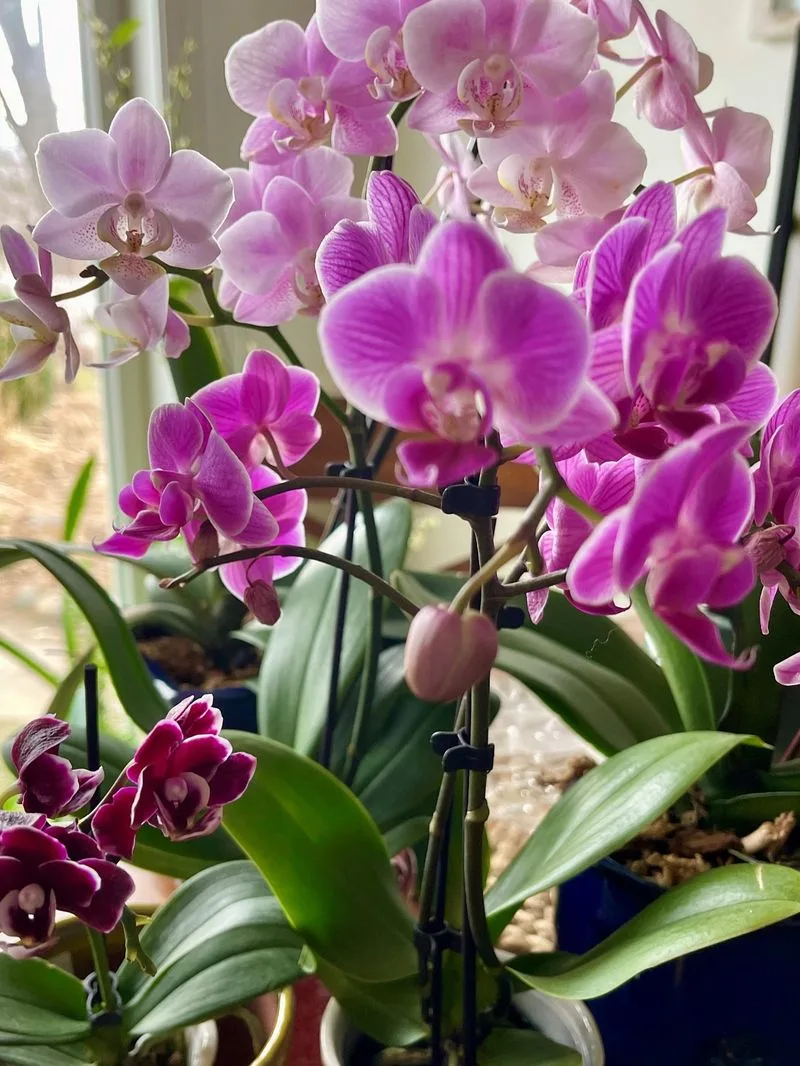
Orchids embody elegance and sophistication, often associated with fertility and abundance. These exquisite flowers thrive in humidity and indirect sunlight, making them ideal for shaded garden spots. Their diverse colors and patterns can enhance any garden’s aesthetic, adding a touch of luxury. Known for their long-lasting blooms, orchids are considered symbols of beauty and strength. In Feng Shui, they are believed to attract love and creativity, making them a meaningful addition to any garden space.
Lucky Bamboo
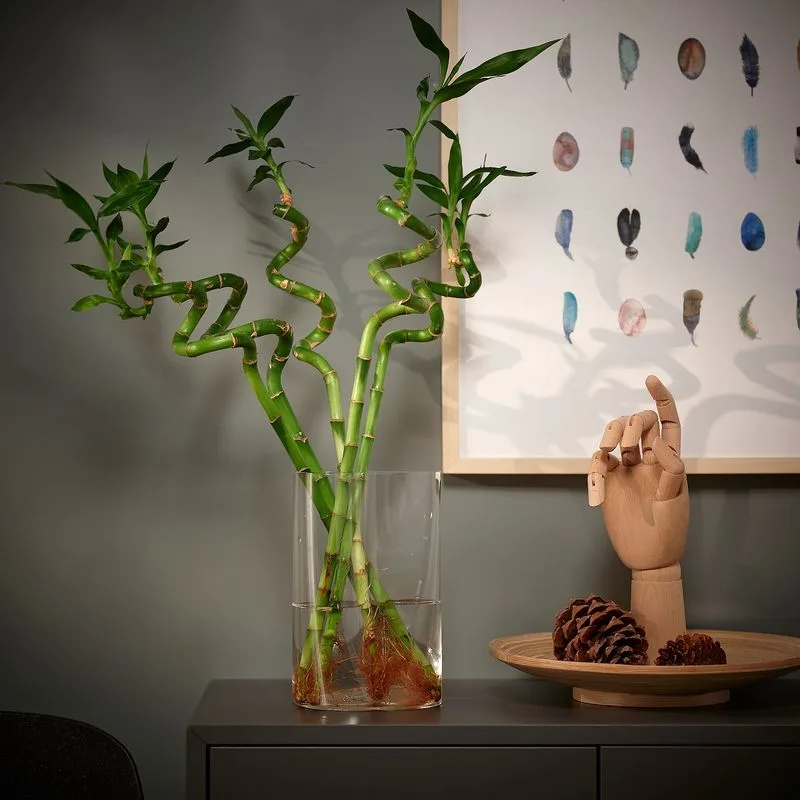
Often mistaken for true bamboo, lucky bamboo is a popular Feng Shui plant known for attracting good fortune and prosperity. Its simple care requirements make it ideal for beginners. Placing lucky bamboo in the east or southeast areas enhances health and wealth. Its unique spiral shape adds visual interest, and its ability to thrive in both water and soil offers versatility. Regularly changing the water and ensuring ample light helps maintain its vitality. This plant’s simplicity and charm make it a favored choice for fostering positive vibes.
Bonsai
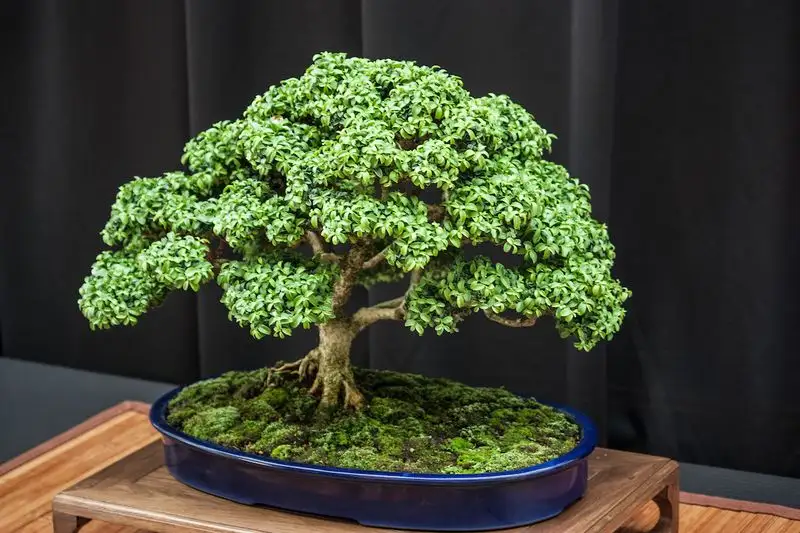
Bonsai trees embody patience and dedication, reflecting the gardener’s skill and care. These miniature trees are cultivated to mimic the full-sized natural forms, adding a unique element to gardens. Their compact size allows for creative placement, enhancing any space with their intricate beauty. Bonsai in Feng Shui is believed to bring balance and harmony, often symbolizing longevity and stability. Regular pruning and attention are essential, nurturing both the plant and the gardener’s mindfulness. Their presence fosters a peaceful and contemplative environment.
Lavender
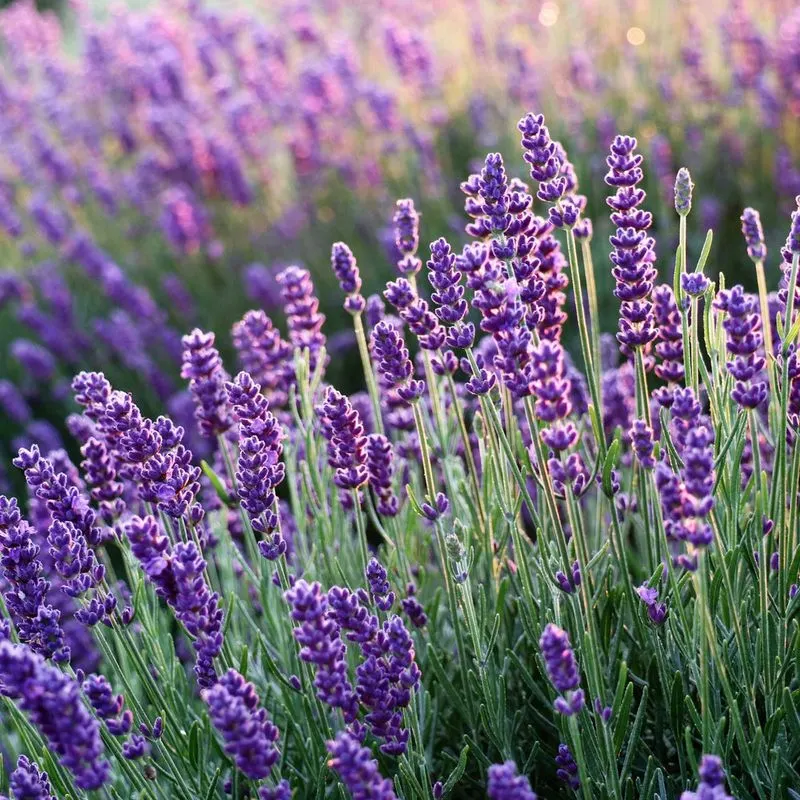
Lavender is cherished for its soothing scent and calming properties. It thrives in sunny, well-drained garden beds, offering both beauty and a pleasant aroma. The vibrant purple flowers attract pollinators, enhancing the garden’s vitality. In Feng Shui, lavender is associated with relaxation and stress relief, promoting a peaceful atmosphere. Its fragrant presence is believed to cleanse negative energies, fostering a sense of tranquility. Regular pruning encourages new growth, ensuring a continuous display of its delightful blossoms.
Mint
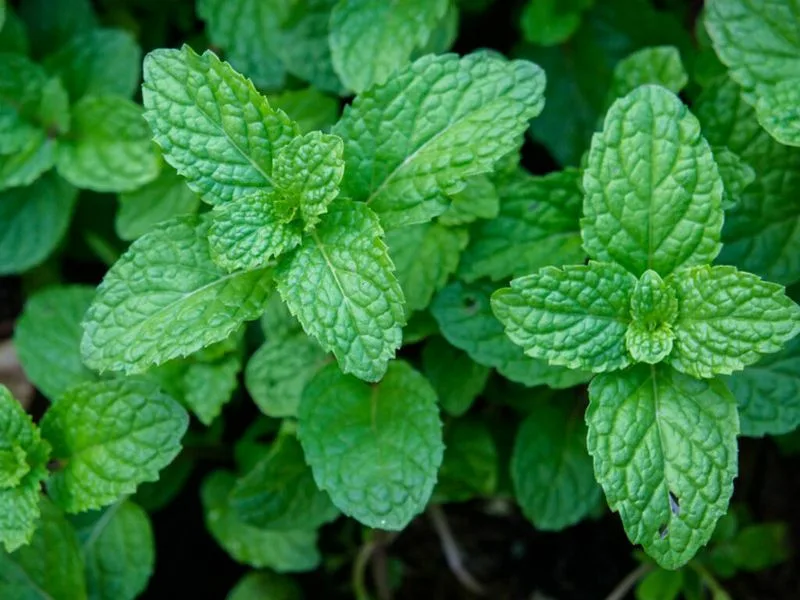
Mint plants are known for their refreshing aroma and culinary versatility. They thrive in sunny or partially shaded areas, adding a lively touch to garden beds or pots. Their rapid growth and spreading nature symbolize abundance and positive energy. In Feng Shui, mint is believed to attract wealth and clarity, often used in rituals to enhance prosperity. Regular harvesting encourages new shoots, keeping the plant lush and vibrant. Its invigorating scent uplifts the spirit, making it a delightful addition to any garden.
Rosemary
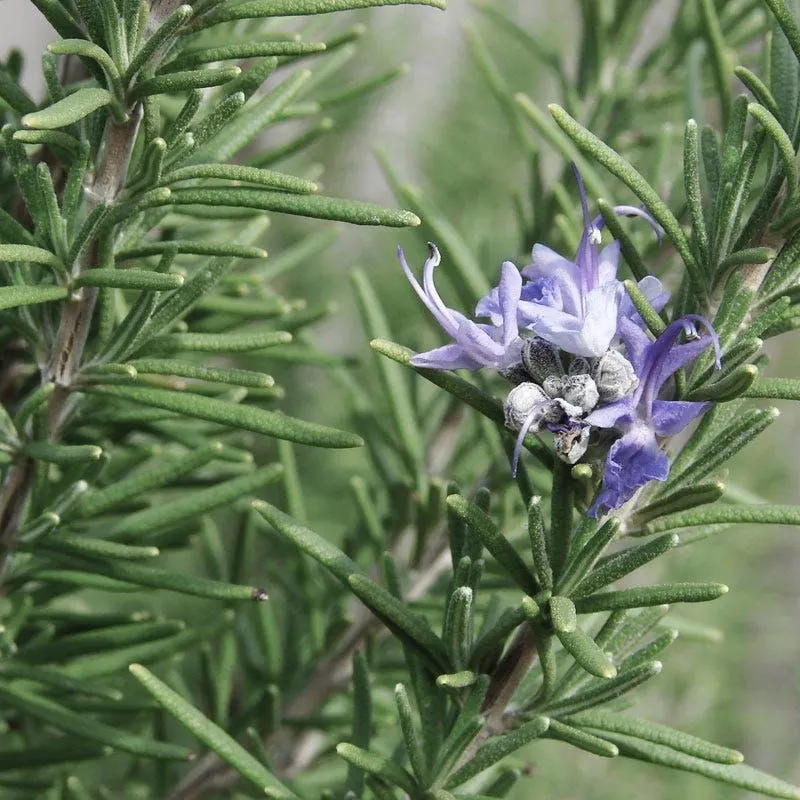
Rosemary is celebrated for its aromatic presence and culinary use. Thriving in sunny spots with well-drained soil, it adds structure and fragrance to gardens. Known for enhancing memory and concentration, rosemary embodies clarity and protection in Feng Shui. Its robust nature symbolizes enduring energy, often planted near entrances to ward off negativity. Regular trimming ensures a bushy, healthy appearance, while its woody stems add architectural interest. This versatile herb enriches both the garden’s ambiance and the cook’s palette.
Chrysanthemum
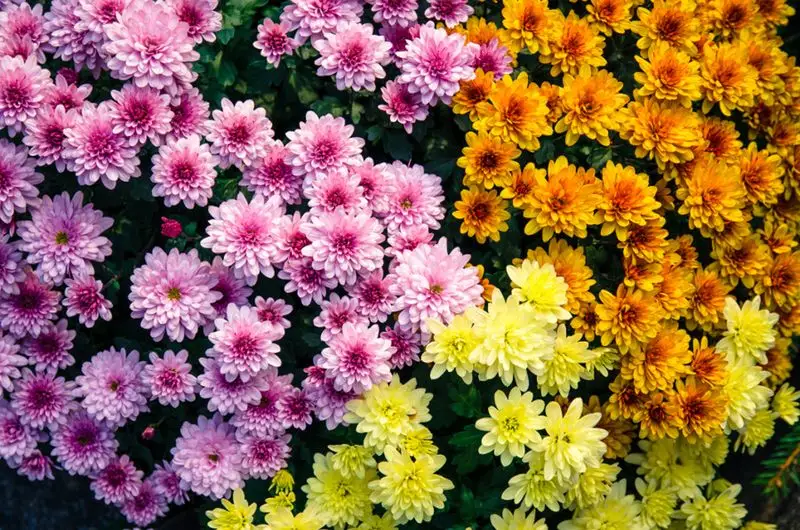
Chrysanthemums are vibrant flowers symbolizing optimism and joy. Their bright blooms flourish in sunny garden spots, offering a burst of color and cheerfulness. In Feng Shui, they represent longevity and good fortune, often used to uplift the home’s energy. These flowers thrive with regular watering and deadheading, ensuring a continuous display of blossoms. Chrysanthemums are believed to enhance relationships and bring happiness, making them a beloved addition to gardens seeking positive vibes.
Aloe Vera
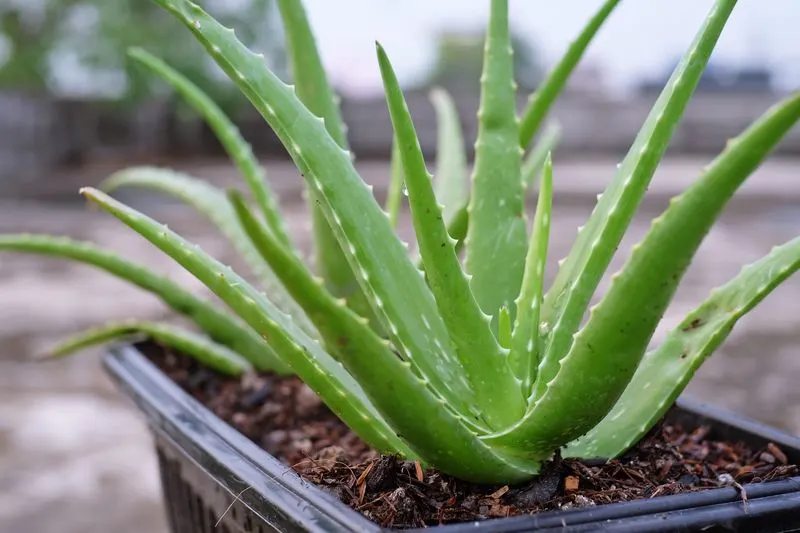
Aloe vera is renowned for its healing properties and robust nature. It thrives in sunny, well-drained locations, offering both beauty and utility. Known for its soothing gel, aloe vera is often associated with health and protection in Feng Shui. Its succulent leaves store water, symbolizing resilience and vitality. This plant requires minimal care, making it ideal for busy gardeners. Aloe vera is believed to clear negative energies while promoting well-being, serving as a functional and aesthetic addition to any garden.
Basil
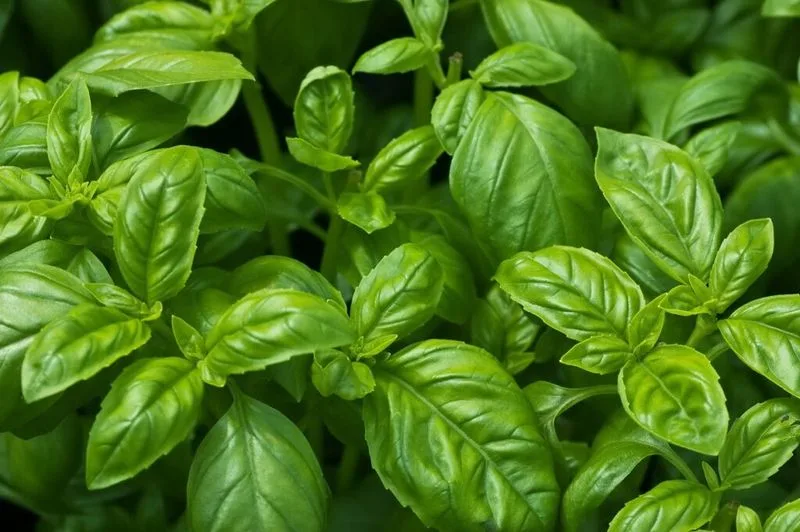
Basil is a fragrant herb celebrated for its culinary and medicinal uses. It thrives in sunny spots, adding vibrant greenery and a delightful aroma to gardens. In Feng Shui, basil represents love and harmony, believed to attract blessings and prosperity. Regular harvesting encourages new growth, ensuring a steady supply of fresh leaves. The plant’s energetic presence uplifts the spirit and enhances the space with its refreshing scent. Basil’s versatility and charm make it a cherished addition to any garden setting.
Snake Plant
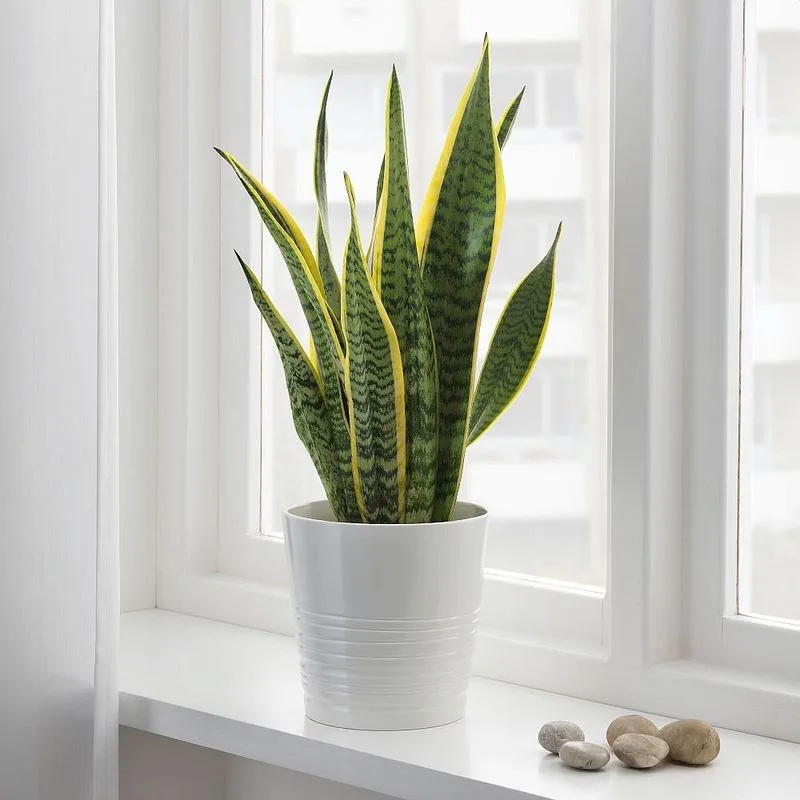
Snake plants are valued for their resilience and air-purifying qualities. They thrive in low light and require minimal watering, making them perfect for shaded garden corners. Known for absorbing toxins, snake plants improve indoor air quality and symbolize strength and protection in Feng Shui. Their striking appearance adds vertical interest, complementing various garden designs. Regular cleaning of leaves ensures optimal health and vibrancy. These easy-care plants are believed to ward off negative energy, contributing to a harmonious environment.
Pachira Money Tree
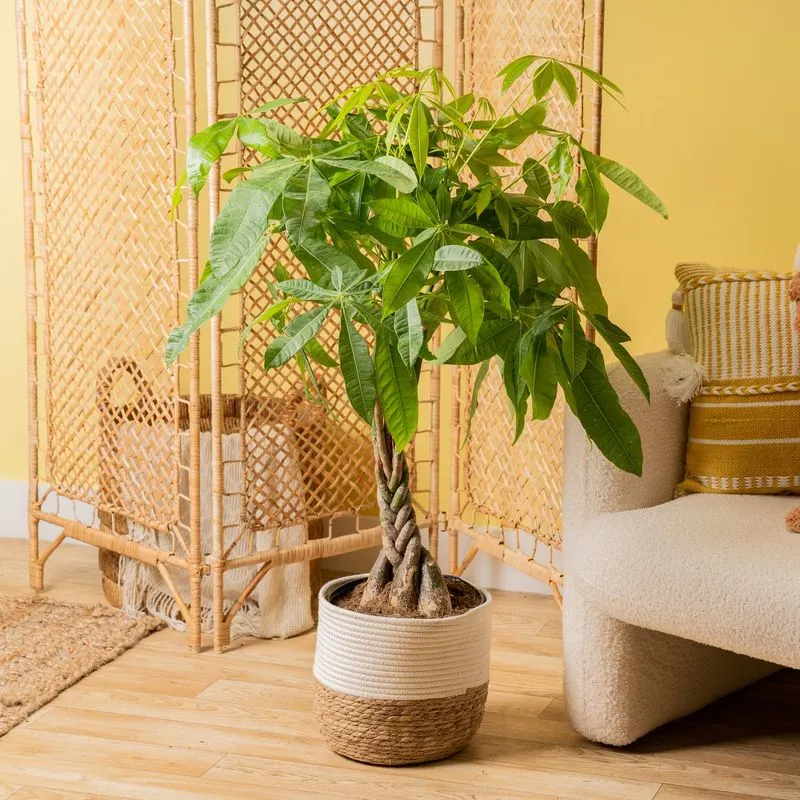
Pachira money trees are popular for attracting wealth and financial luck. Their braided trunks and lush green leaves are believed to enhance prosperity and abundance. Thriving in indirect light, they require consistent watering to maintain health. In Feng Shui, pachira trees are often placed in the southeast corner to amplify wealth energy. Their unique appearance and easy care make them a favorite among garden enthusiasts seeking positive energy. Regular rotation of the plant ensures even growth and vibrancy.
Chinese Evergreen
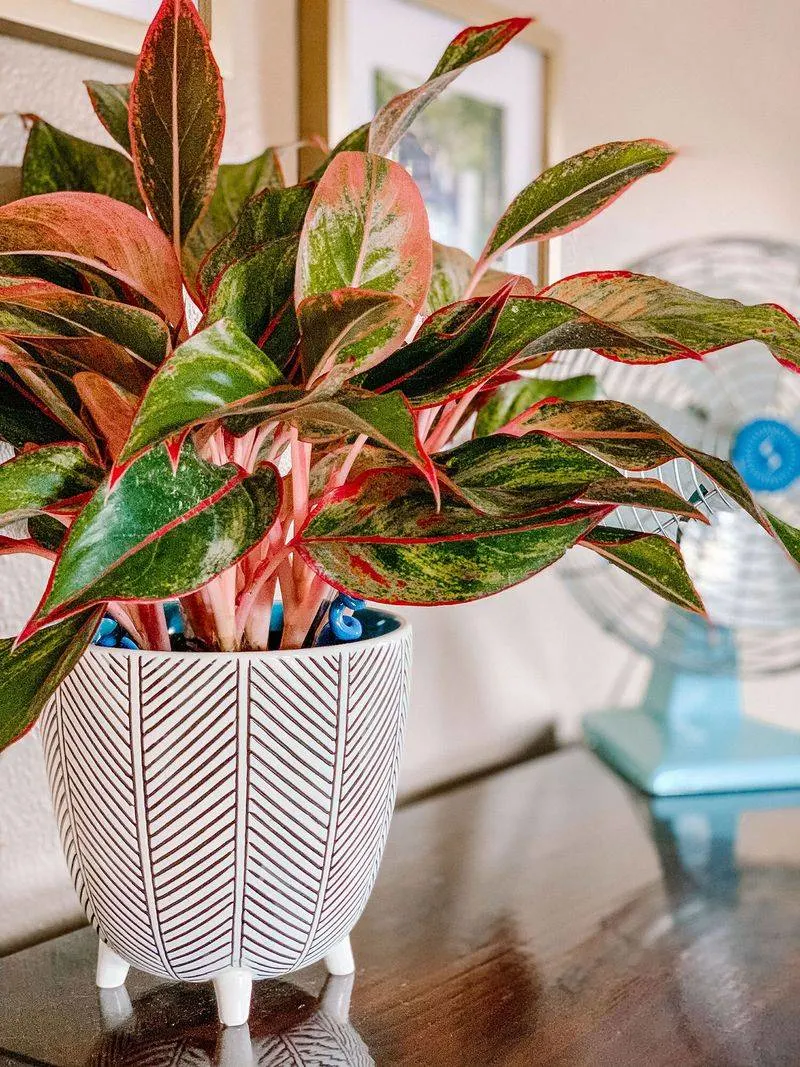
Chinese evergreen plants are prized for their striking foliage and adaptability. They thrive in low-light areas, making them ideal for shaded garden spots. Known for their air-purifying abilities, these plants enhance indoor air quality while symbolizing resilience and peace. In Feng Shui, they are considered to attract luck and positivity, often used in areas needing revitalization. Regular dusting of leaves keeps them healthy and vibrant. Their diverse leaf patterns add visual interest, bringing a touch of elegance to any garden arrangement.
Ficus
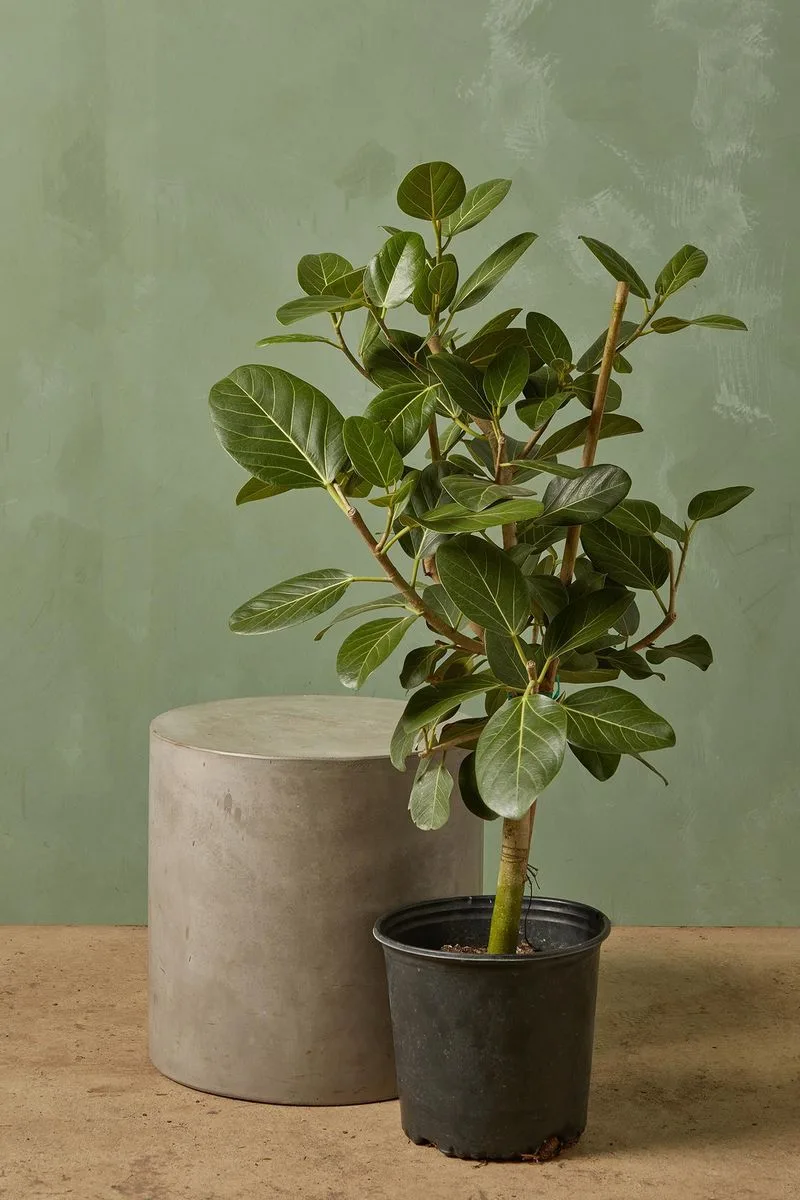
Ficus trees are admired for their glossy leaves and graceful form. Thriving in well-lit areas, they add height and elegance to garden spaces. In Feng Shui, ficus is associated with unity and protection, believed to shield against negative energies. Regular pruning helps maintain shape and encourages new growth, ensuring a lush appearance. Their robust nature and attractive foliage make ficus trees a popular choice for enhancing garden harmony. With proper care, they become a focal point that enriches the garden’s ambiance.
Geranium
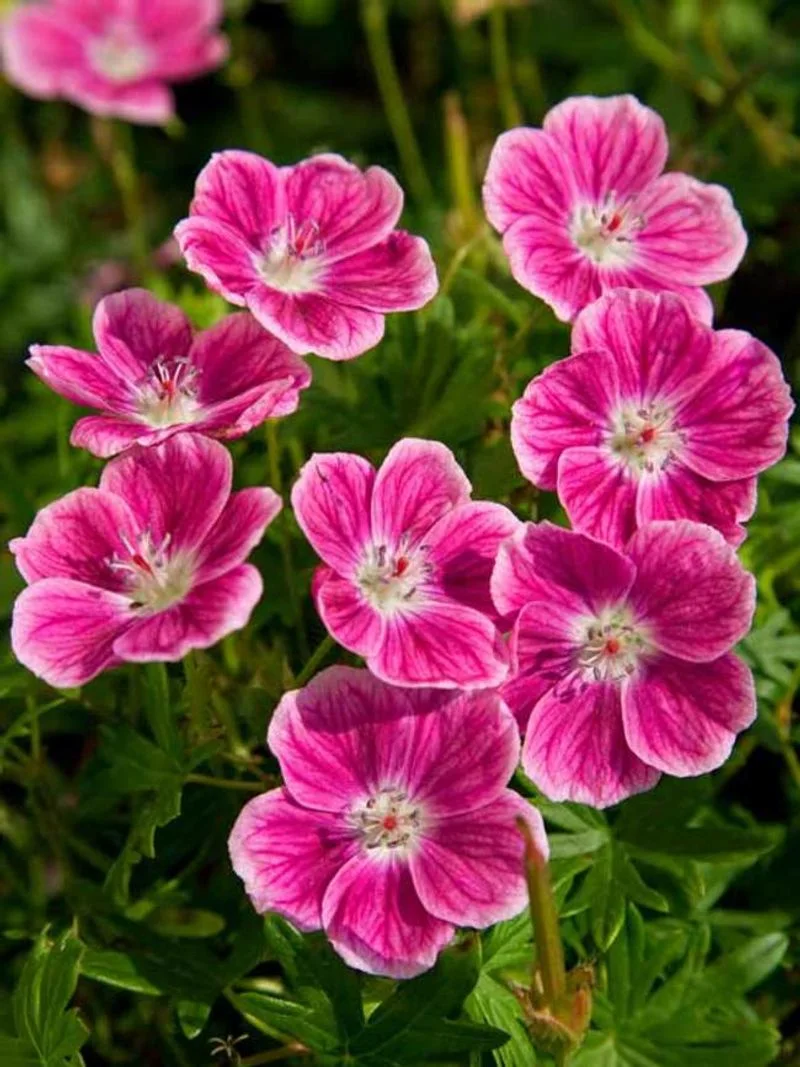
Geraniums boast vibrant blooms and a delightful scent, thriving in sunny garden spots. Known for their cheering presence, they symbolize happiness and health in Feng Shui. Regular watering and deadheading encourage continuous flowering, ensuring a lively display of colors. Geraniums are believed to attract positive energy and dispel negativity, making them a popular choice for garden beautification. Their versatility allows for various placements, from hanging baskets to garden beds, adding charm and vitality to any outdoor space.
Lemon Tree
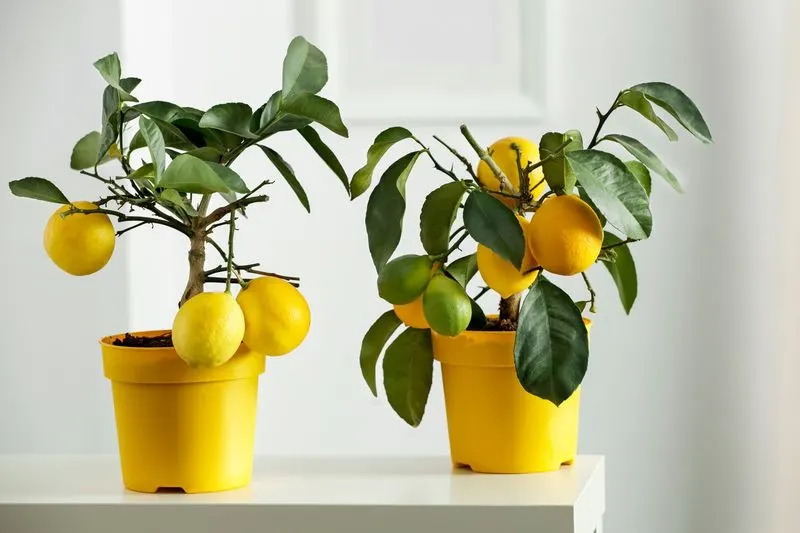
Lemon trees bring a zesty fragrance and a touch of sunshine to gardens. Thriving in bright, sunny locations, they offer both beauty and bounty. In Feng Shui, lemon trees are associated with cleansing and prosperity, believed to clear negative energies from the surroundings. Regular pruning and fertilization promote fruit production and overall health. The vibrant lemons add a pop of color, and their fresh aroma invigorates the garden. This fruitful plant not only enhances visual appeal but also fosters a refreshing and positive environment.
Chamomile
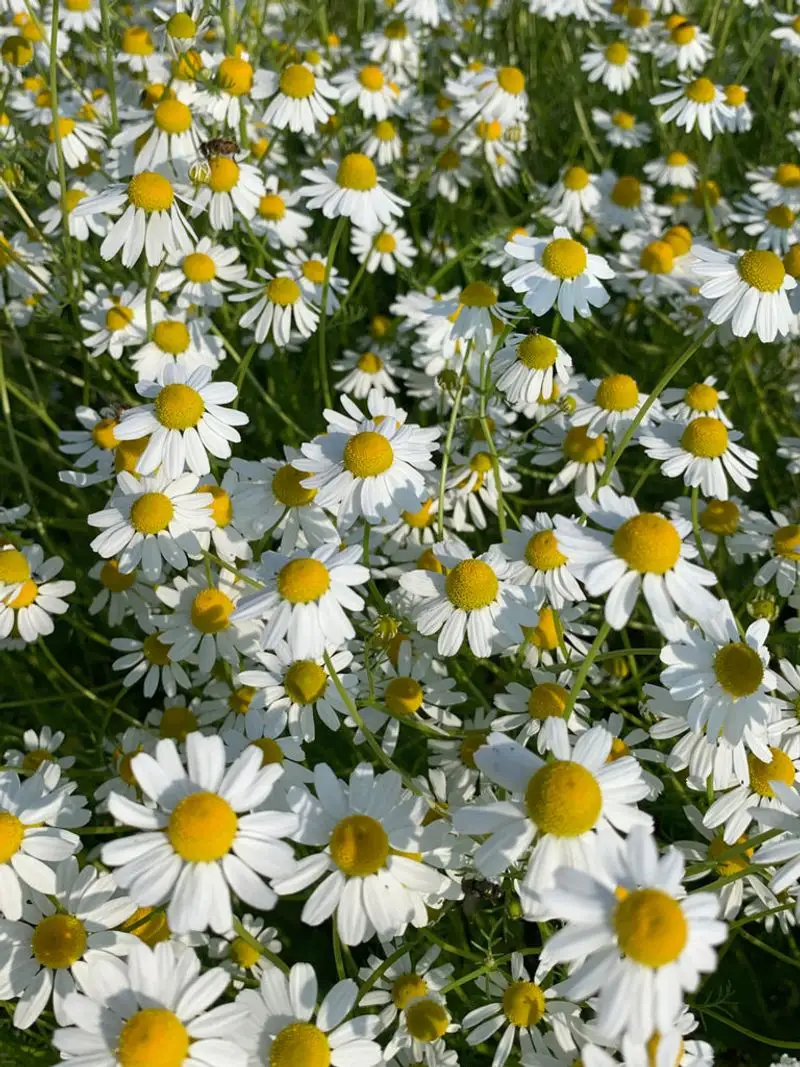
Chamomile is cherished for its calming qualities and gentle beauty. Thriving in sunny or partially shaded spots, it offers a soothing presence with its dainty white blooms. In Feng Shui, chamomile is associated with relaxation and purification, believed to promote peace and harmony. Regular harvesting of flowers encourages new growth, ensuring a continuous supply of blossoms. The plant’s soothing aroma and delicate appearance make it a favored choice for creating a tranquil garden setting. Chamomile invites serenity and positivity into the space.
Gardenia
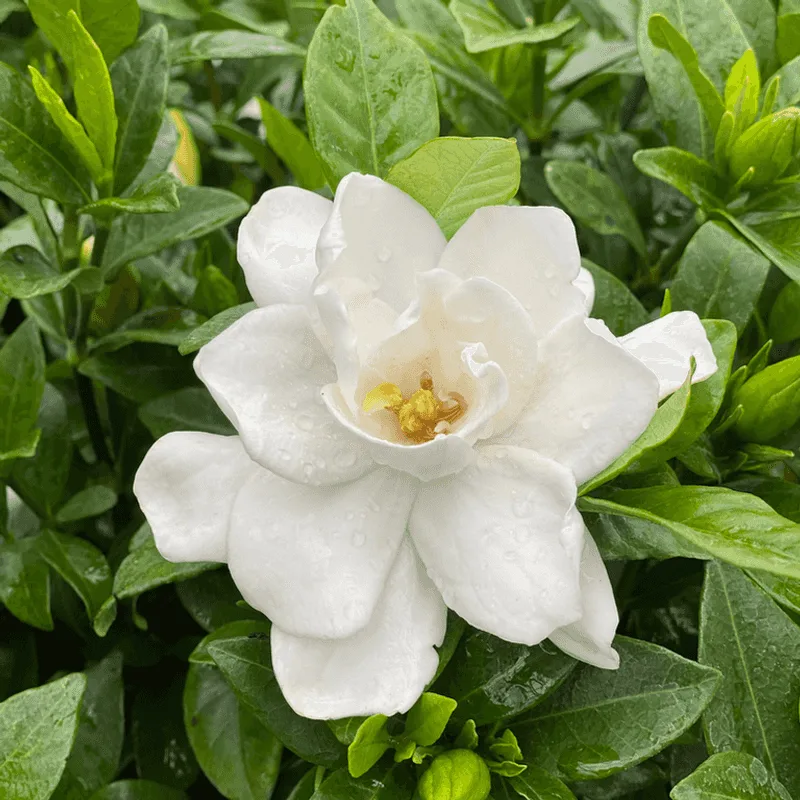
Gardenias are prized for their intoxicating fragrance and elegant blooms. They thrive in well-drained, acidic soil and require ample sunlight to flourish. In Feng Shui, gardenias symbolize love and peace, often used to enhance romantic relationships. Their lush foliage and creamy white flowers add sophistication to gardens. Regular pruning and fertilization keep gardenias thriving, making them a show-stopping centerpiece. Their captivating scent and classic beauty create a harmonious atmosphere, inviting positive energy and joy into the garden.
Hibiscus
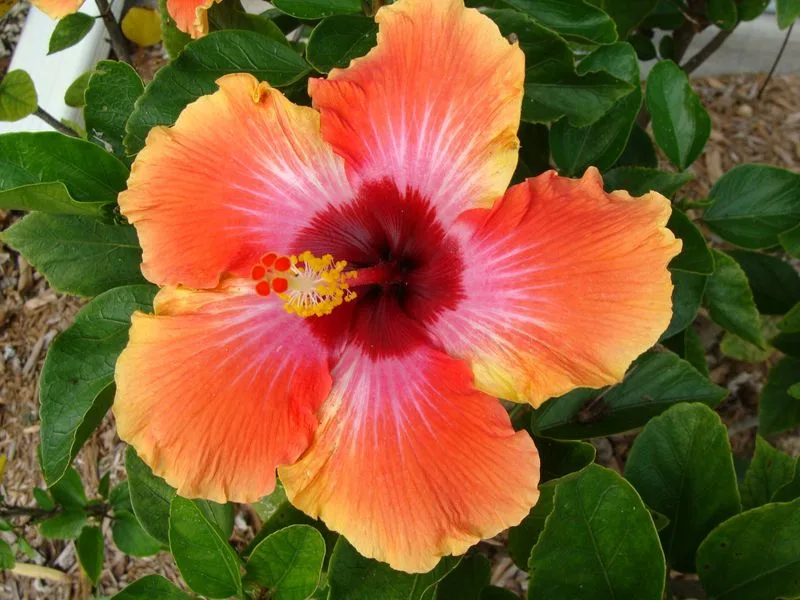
Hibiscus plants are celebrated for their large, colorful blooms that bring tropical flair to gardens. Thriving in sunny locations, they offer a bold splash of color and vitality. In Feng Shui, hibiscus symbolizes fame and recognition, believed to boost personal growth and confidence. Regular watering and pruning encourage continuous flowering and vigorous growth. Their striking appearance and energetic presence make hibiscus a popular choice for enhancing garden energy. This plant’s vibrant charm and dynamic aura invite positivity and success into the space.

